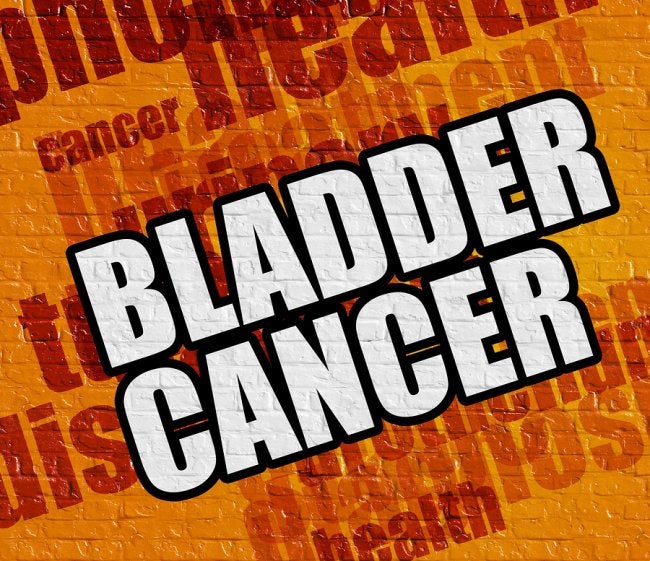-
Exploring Common Types of Female Sexual Dysfunction

Sexual dysfunction can refer to any sort of problem with any stage of sexual activity—from desire to orgasm. Just like in men, sexual health issues in women may be caused by physical health problems or psychological issues, or by a combination of these. Consider talking to a urologist about your sexual health concerns. Getting the treatment you need may improve your quality of life and restore your intimate relationship. You might even discover that you have an underlying medical condition that needs treatment, such as diabetes or heart disease.
Arousal Disorders
The sexual stimulation that precedes intercourse may be physical, mental, or emotional. Sexual stimulation results in physical changes like vaginal secretions and emotional changes like heightened sexual interest. Women with arousal disorders fail to experience these changes. It’s still possible for physical changes to occur, but without the woman experiencing a heightened awareness of them. Sexual arousal disorders can have psychological causes, such as depression, anxiety, and stress, and they can have physical causes, such as hormonal imbalances and atrophic vaginitis.
Desire Disorders
Female hypoactive sexual desire disorder is generally defined as a lack of desire for sexual activity that causes psychological distress or strained intimate relationships. Like arousal disorders, desire disorders can be caused by both physical and psychological problems. These include depression, low self-esteem, heart disease, diabetes, and cancer.
Orgasmic Disorders
Women with orgasmic disorders might not experience problems with desire or arousal, but they do have difficulty achieving orgasm. Sexual health experts suggest that orgasmic disorders may affect as many as one in every three women . This sexual health problem may stem from older age, prior gynecological surgery, history of sexual abuse, or medical conditions like diabetes.
Sexual Pain Disorders
Some women suffer from pain during or after sex. In menopausal women, atrophic vaginitis is a common cause. Younger women may experience sexual pain disorders because of interstitial cystitis, the involuntary contraction of the vaginal muscles, endometriosis, or a history of sexual abuse.
Women’s Institute for Sexual Health (WISH) at Urology Associates, P.C. provides the compassionate, confidential care that women deserve. Our sexual dysfunction treatments available in Nashville reflect the latest scientific advances in the field. Call us today at (615)250-9265 to request an appointment with a WISH provider.
-
Is Adult Circumcision Right for You?

More than half of boys born in the U.S. are circumcised before the parents take them home for the first time. Usually, parents opt for circumcision for religious, cultural, or health reasons. If you weren’t circumcised at birth, you might decide to consider adult circumcision. Talk to a urologist about the potential benefits and risks before deciding if it’s right for you. The potential risks of adult circumcision include infection and bleeding.
There are several benefits to circumcision, but if you aren’t currently experiencing problems, it might not be worth it to have the procedure. The ease of maintaining good hygiene is generally about the same for circumcised and uncircumcised men. However, if you have difficulties with hygiene, your urologist may recommend circumcision. Circumcision is also associated with a lower incidence rate of urinary tract infections (UTIs). It’s possible, though not definitively proven, that circumcision may lead to a lower risk of penile cancer.
If you’d like to speak with a urologist in Tennessee about adult circumcision , you can call (888) 329-7700. The team at Urology Associates, P.C. routinely treats men for issues such as sexual dysfunction.
-
What Men Need to Know About Urethral Strictures

Both men and women have urethras, which are tubes that transport urine out of the body. There are a few medical problems that can affect a man’s urethra, including urethral strictures. A urethral stricture occurs when the urethra becomes abnormally narrow . If you’ve been diagnosed with this painful condition or you suspect you might have symptoms of it, it’s time to make an appointment with a urologist.
Signs and Symptoms
Urethral strictures can be uncomfortable, causing pain of the lower abdomen and pelvic area, along with painful or difficult urination. Other urinary symptoms can include the following:
- Loss of bladder control (incontinence)
- Urinary urgency
- Increased urinary frequency
- Bloody urine
- Dark urine
- Inability to fully empty the bladder
- Weak urine stream
Along with urinary problems, urethral strictures may result in bloody semen, abnormal urethral discharge, and penile swelling.
Causes and Risk Factors
Men may have urethral strictures because of a disease or injury that affects the area. Some people develop scar tissue after undergoing surgery, which can also cause narrowing of the urethra. It’s possible, although not likely, for urethral strictures to be caused by a tumor. Tumors that grow near the urethra can exert pressure on the tube. Other factors that may increase the risk of urethral strictures include recurrent urethritis, pelvic injury, sexually transmitted disease (STD), and benign prostatic hyperplasia (BPH), which is an enlarged prostate. Additionally, men may have a higher risk of urethral strictures after requiring a urinary catheter or having a cystoscopy.
Treatment Options
In emergency situations, a doctor may place a suprapubic catheter to drain the urine and prevent complications. To treat the underlying cause, it’s possible to widen the urethra during a cystoscopy. The urologist can apply a topical anesthetic before stretching the urethra with a specialized instrument. If this doesn’t work, men may need surgery to correct the problem.
Urology Associates, P.C. is a leading provider of high-quality, patient-focused urology services in Tennessee. Our urologists provide cutting-edge treatments for men with urethral strictures and sexual dysfunction. If your doctor has referred you to a urologist, you can call our office at (888) 329-7700.
-
Introducing a New Treatment for Women’s Sexual Health
Since medications became available to treat low libido, much of the focus on sexual dysfunction has been on male sexual health. But countless women also experience sexual health problems. When you watch this video, you’ll hear from 2 nurse practitioners at the Women’s Institute for Sexual Health (WISH), a division of Urology Associates, P.C.
These ladies explain that almost half of all women in the U.S. experience some type of sexual dysfunction, such as pain during intercourse, vaginal dryness, or low libido. Now, there is finally an FDA-approved medication available to improve sexual health in women. Watch this video to hear about the clinical trials for this medication.
If you would like to speak with a sexual health specialist in Tennessee, you can call (615)250-9265. The WISH clinic at Urology Associates, P.C. provides sensitive, confidential care for women .
-
Dealing with Painful Sex After Childbirth

It usually takes about six weeks for women to heal from childbirth. Ob/Gyns generally recommend waiting at least this long before having sex. If you’re past this point and intercourse is still painful, your gynecologist may need to evaluate your sexual health. It’s possible that you aren’t fully healed.
In most cases, however, persistently painful sex after childbirth is attributable to vaginal dryness. If you’re breastfeeding, your hormone levels can increase vaginal dryness and cause sexual health problems. The increased level of prolactin can also suppress libido. This sort of sexual dysfunction should be temporary. In the meantime, you can use a lubricant to prevent pain. Choose a glycerin-free lubricant to reduce the risk that the condom will break.
At Urology Associates, P.C. , we understand that women with sexual health issues in Nashville need sensitive, patient-focused care. Contact us at (615)250-9265 to request a confidential appointment with one of our dedicated providers at the Women’s Institute for Sexual Health (WISH).
-
Diagnosing Bladder Cancer
In most cases, bladder cancer begins in the lining of the bladder. As it progresses, it can penetrate deeper and potentially spread to other parts of the body. As with other types of cancer, it’s preferable if a urologist diagnoses bladder cancer when it’s in its early stages. When you watch this featured video, you’ll hear from Dr. David Morris—a board-certified urologist at Urology Associates, P.C.
Dr. Morris explains that many bladder cancer patients come to Urology Associates, P.C. after noticing blood in the urine. To diagnose the problem, you will likely have a cystoscopy, which is an invasive exam that may include a biopsy.
At Urology Associates, P.C., you’ll receive exceptional, compassionate bladder cancer care in Tennessee. You can request a referral to a urologist by calling (888) 329-7700.
-
Reducing Your Risk of Kidney Stones

Kidney stones are comprised of hardened deposits of minerals and acid salts. Although the symptoms of kidney stones can vary in intensity, many women have said the pain is worse than childbirth. Not all kidney stones require surgical intervention, but it’s a good idea to consult a urology specialist for expert treatment. If you’ve been diagnosed with kidney stones once, you should know that you’re at risk of getting them again. The following tips can help you prevent recurrent stones.
Increase your water intake.
Drinking plenty of water is essential for your health in general and kidney stone prevention in particular. During hot weather and while exercising, increase your water intake even more. As a general rule of thumb, you’re drinking enough water if your urine is very lightly colored or clear.
Increase your consumption of plant-based proteins.
It’s thought that eating lots of animal-based proteins may increase the risk of developing kidney stones. Your urologist may ask that you limit beef, chicken, and pork. Organ meat is thought to be especially impactful regarding kidney stone development. Consider limiting your intake of eggs, poultry, seafood, and dairy products.
Avoid calcium supplements.
Although calcium can be found in kidney stones, the consumption of food sources of calcium doesn’t appear to influence the risk. However, your urologist may suggest that you avoid calcium supplements.
Reduce your sodium intake.
Managing your sodium intake is particularly important if your kidney stones were calcium oxalate or calcium phosphate stones. There are lots of sneaky sources of sodium in the average American diet. High amounts of sodium are found in deli meats and cheeses, bread, pizza, soup, canned foods, and even frozen vegetables that include sauces. An effective way to reduce your sodium intake is to avoid processed foods and takeout, and to cook with fresh ingredients at home instead.
If you do need kidney stone treatment within Tennessee, you can count on Urology Associates, P.C. Our urologists offer cutting-edge treatments and sound medical guidance you can trust. Call our office at (888) 329-7700 to request a prompt appointment.
-
A Patient’s Guide to Epididymitis

The epididymis is a small, coiled tube located at the rear of the testicle. It’s responsible for storing and transporting sperm. When this tube becomes inflamed, the condition is called epididymitis. Epididymitis can be painful. If you suspect you might have this condition, it’s a good idea to see a urologist promptly.
Signs and Symptoms
Acute epididymitis often causes one-sided testicular pain and tenderness, swelling and reddening of the testicle, and painful urination. Men may also experience the following:
- Urgent or frequent urination
- Penile discharge
- Painful ejaculation
- Pain of the pelvic region
- Bloody semen
- Testicular lump
- Fever
Chronic epididymitis occurs when the symptoms last longer than six weeks.
Causes and Risk Factors
In boys and men who are sexually active, the most common cause of epididymitis is sexually transmitted diseases (STDs) like gonorrhea and chlamydia. It’s also possible to develop epididymitis because of a non-STD infection, such as urinary tract infections. In some men, urine trickles backward into the epididymis. This can also cause inflammation. Other possible causes and risk factors include the following:
- Groin injury
- Tuberculosis
- Certain medications
- Unprotected sex
- Prostate enlargement
- Uncircumcised penis
Diagnostic Tests
To diagnose epididymitis, a urologist will perform a physical exam, review the patient’s medical history, and evaluate his symptoms. A rectal exam may be needed to rule out the possibility of prostate enlargement. Then, the urologist may ask to run some tests, such as an STD screening, urine test, and blood test. Sometimes, an ultrasound can be helpful to rule out the possibility of testicular torsion.
Treatment Options
If the urologist determines that the problem is caused by a bacterial infection, he or she can prescribe antibiotics. For STDs, it’s necessary to treat the patient’s sexual partner. While the infection is clearing up, patients can relieve their discomfort by wearing an athletic support and applying cold packs. A follow-up visit will check whether the infection has resolved. In some cases, an abscess may have formed. This requires surgical intervention.
If you’re experiencing sexual health problems, you can turn to the trusted urology team in Tennessee. The award-winning, board-certified urologists at Urology Associates, P.C. are dedicated to providing compassionate, patient-centered care. Call (888) 329-7700 to request an appointment or visit our website to read more about male health issues, including sexual dysfunction.
-
A Look at Life After Bladder Cancer

Surviving any type of cancer is cause for celebration. But if you’ve survived bladder cancer , you should know that you’re at a high risk for recurrent bladder cancer. Your cancer care team at Urology Associates, P.C., will develop a survivorship care plan that is designed to help you live life well after cancer.
Keep all appointments for follow-up exams.
Your survivorship care plan should include a schedule of follow-up exams you’ll need. Because of the high risk of recurrent cancer, it’s essential not to skip these appointments. At each follow-up visit with your urologist, you’ll likely have a physical exam. You may be asked to have some medical tests, which might include blood tests, imaging exams, and urine tests. Assuming that you still have your bladder, you can expect periodic cystoscopy exams. As time passes and you remain cancer-free, your doctor may begin scheduling follow-up visits with reduced frequency.
Report unusual symptoms you experience to your doctor.
If you experience any signs or symptoms that might indicate a recurrence of cancer or the development of new cancer, contact your doctor right away—don’t wait for your next follow-up appointment. Your urologist will let you know which signs and symptoms to watch out for, such as changes in urination and bloody urine.
Reduce your exposure to toxins.
It’s to be expected that, after surviving bladder cancer, you’d be motivated to make some lifestyle changes to improve your health. There is no foolproof way to prevent recurrent cancer or new cancers, but there are impactful ways you can safeguard your health. If you don’t smoke, don’t start and also try to avoid secondhand smoke. If you do smoke, talk to your doctor about methods of quitting. Other environmental toxins may contribute to an increased risk of cancer. If your job requires exposure to any chemicals, you can ask your doctor if this might place you at an increased risk.
For compassionate bladder cancer treatment in Tennessee, you can put your trust in the caring team at Urology Associates, P.C. Our urology specialists are committed to helping our patients live life well , during and after cancer treatment. Call us today at (888) 329-7700.
-
Get the Answers to Your Questions About Vasectomy Reversal

It’s not uncommon for men who have undergone a vasectomy in the past to decide that they would like to reverse the procedure. In many cases, with the help of a trained urologist, reversals can be successful. If you are considering having a vasectomy reversal, here are the answers to some questions that are likely to be on your mind.
What is the first step in getting a vasectomy reversal?
The first step is to schedule an appointment with a urologist. During this consultation appointment, your physician will ask extensive questions about your medical history, including your fertility history. If you are having the reversal because you want to start a family in the short term, your urologist will also ask questions about your partner’s fertility history. This information allows your urologist to determine the best way to support your goals to achieve pregnancy. Many men find it helpful to bring their partners with them to the initial consultation.
What happens during the procedure?
The exact process your urologist chooses for your vasectomy reversal depends on many different factors, including how long it has been since your vasectomy and how that initial procedure was performed. Your urologist will explain the care plan he or she creates for you in detail so that you know exactly what to expect.
Will my vasectomy reversal work?
The biggest factor in determining how successful your vasectomy reversal will be is the length of time since your vasectomy. It is impossible to know for sure which reversal procedures will be successful, but your urologist can help you understand your chances of success and what your options are should the procedure fail.
Because many insurance companies do not cover vasectomy reversals, Urology Associates, P.C., offers helpful financing plans for patients. To make an appointment for your urology consultation in Tennessee call (855) 901-1338.
Recent Posts
categories
- Uncategorized
- Bladder Cancer
- Women's Sexual Health
- MonaLisa Touch
- Urology
- Urologist
- Erectile Dysfunction
- Kidney Cancer
- Incontinence
- Prostate
- MonaLisa Touch Laser Treatment
- Kidney Stones
- Urinary Tract Infections
- Event
- Sexual Dysfunction
- Testicular Cancer
- Prostate Cancer
- Urology Surgery Center
- urinary incontinence
- vaginismus
- noncoital pain disorder
- Hypoactive Sexual Desire Disorder
- Infographic
- provenge
- Xofigo
- robotic surgery
- hormone replacement
- diabetes
- renal cell carcinoma
- pelvic pain
- hematuria
- sexual health
- chronic testicular pain
- premature ejaculation
- Men's Health Clinic
- Dr. Melvin Seard
- Interstitial Cystitis
- vasectomy
- overactive bladder
- vaginal atrophy
- nocturia
- bladder infections
- urethral strictures
- Acute Epididymitis
- low sex drive
- circumcision
- pelvic floor dysfunction
- Peyronie's Disease
- prostatitis
- female sexual dysfunction
- varicocele
- difficult urination
- low libido
- PSA levels
- male fertility
- penile prosthesis
- prostatic intraepithelial neoplasia
- male infertility
- estrogen levels
- nurse navigator
- stress urinary incontinence
- vaginal yeast infection
- elevated psa
- painful sex
- adult circumcision
- epididymitis
- OAB
- kidney infection
- penile cancer
- pelvic organ prolapse
- Vasectomy Reversal
- bone health
- cystectomies
- clinical trials
- bloody urine
- Advanced Therapeutic Center
- WISH MedSpa
- neurogenic bladder
- WISH Team
- prostate biopsies
- BPH
- fecal incontinence
- lithotripsy
- osteoporosis
- kidney cysts
